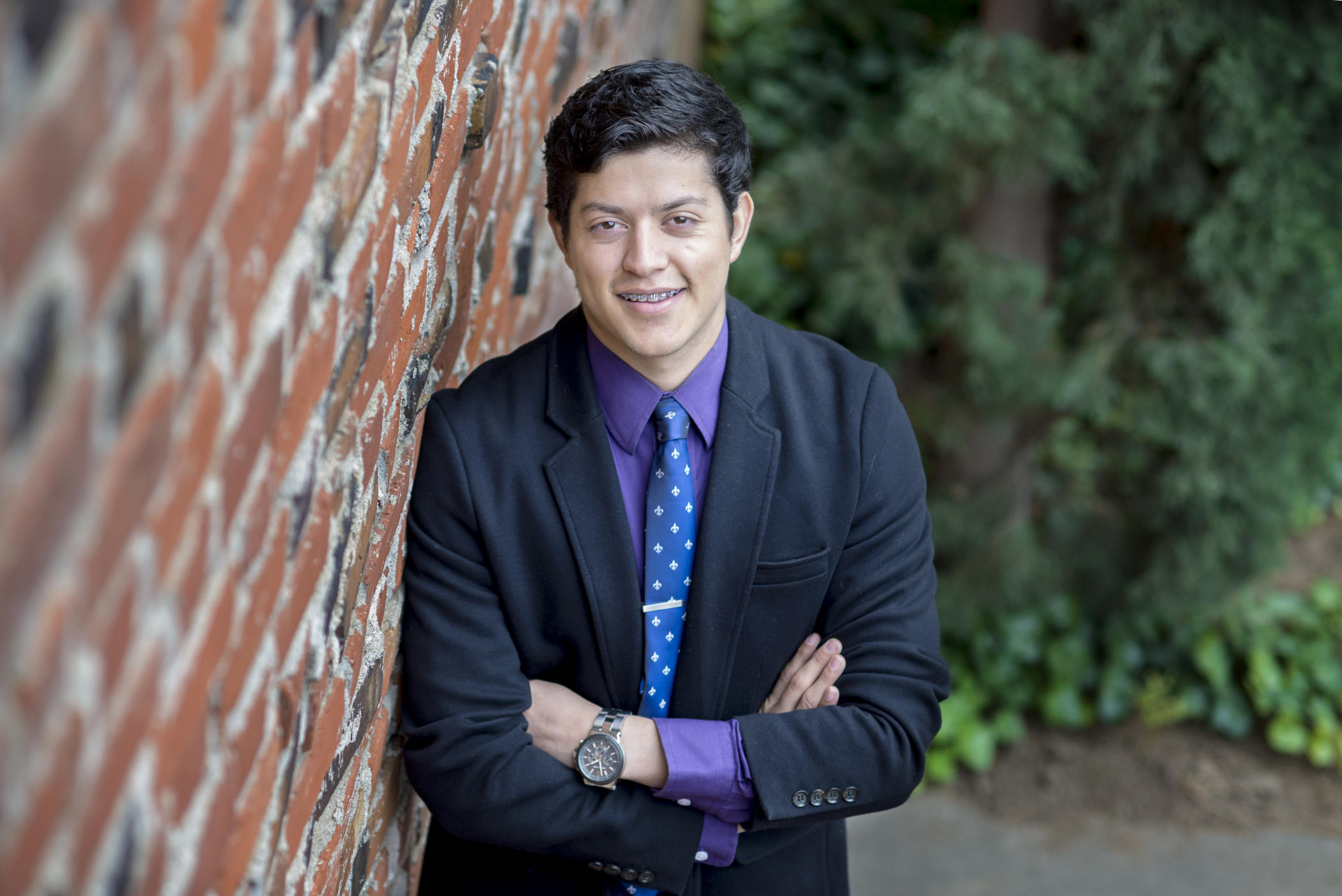Ivy League Inspiration

Alum credits Chico State professors with path to Harvard
Twenty-four units of classes, three jobs, and no sleep was easy for Diego Yepez. All the double-major in math and philosophy had to do was think back to his summers sweating in orchards for hours as he picked the fruit that would help pay his way through college.
“It’s not Monday to Monday where you never rest,” he said.
Now a PhD candidate on a full special student scholarship to Harvard University, Yepez says he owes it all to several Chico State professors—Thomas Imhoff, Zanja Yudell, and Robert Jones in the Department of Philosophy. The faculty members did not just recognize his potential but they encouraged him to chase it.
“They said if I put in the work, anything was possible,” Yepez recalled. “I said, ‘I want to be smart.’ And that quest for intelligence just grew and grew.”
Yepez was born in Michaocan, and a young boy, he flip-flopped between schools in the United States and Mexico as his parents seasonally migrated as farm laborers. In high school, they decided it would be best for him to live with his brother in Lodi so he could attend school entirely in the US and work in the fields to save money.
When he first arrived at Chico State, living in his car his first semester, all he cared about was making his parents proud.
He met Imhoff his freshman year and the philosophy professor immediately captivated him. Yepez took as many of his classes as possible, even when they didn’t count toward his degree.
His sophomore year, he met Yudell.
“He’s such a brilliant guy, you want to be like him in a certain way,” Yepez said. “They were just always there for me, whatever I needed, and not always math or philosophy.”
His professors were equally impressed, describing him him as confident, inquisitive, and among the most driven students they’ve ever taught.
With a desire for his classes to build on one another, when Yepez found a course that could help him—but hadn’t been offered in years—he helped restart it and filled its seats with other students.
“When you have a student like that in your class, it makes it better for everybody,” Yudell said.
Yepez remembers his sophomore year, talking with Imhoff about the possibility of ever being admitted to an Ivy League school.
“He nodded and kind of laughed, and said if I put in the work, anything was possible,” he said. Imhoff went on sabbatical and Yepez made it his mission to prove during his mentor’s absence that he could in fact do the work.
He amped up his course load to 24 units, while also working three jobs as a calculus tutor, a math tutor, and at Rapid Graphics.
He applied to nine Ivy League-plus schools—Yale, Princeton, Harvard, Brown, Cornell, Stanford, Columbia, University of Chicago, and the University of Pennsylvania.
He said he was largely influenced by Yudell, who earned his PhD at Columbia; and Jones, who also went the CSU-Ivy League route, from a community college to CSU Northridge to UCLA to Stanford.
And they say they saw a bit of themselves in him.
“We connected that we came from blue-collar, working-class backgrounds,” Jones said. “He had aspirations. He was always shooting for some kind of higher achievement.”
This spring, the graduate school rejection letters started trickling in, each one a crushing blow for a man who had worked so hard.
Job offers were also scant. All four of his professors had written Yepez letters of recommendation and he felt he may have let them down.
“I’m feeling devastated, and I didn’t want to tell anybody,” he said.
Eventually, he stopped checking for acceptance letters. He figured he would go back to the fields and pay off his student loans.
Then, in March, he was offered a job with Oracle. Spirits lifted, he turned to his professors for more advice, this time, whether he should buy a BMW or a Mercedes with his new salary.
One morning, he woke up to three texts from Jones saying to check his email. Logging in, he saw three messages from Harvard.
The first was from the director of graduate studies, with a suggestion to visit the campus. Another was from human resources, asking if he would be interested in taking a class in philosophy in Spanish.
It wasn’t until the third email the realization sunk in.
“’On behalf of the college, I’m happy to inform you that you have been accepted as a special student,’” Yepez recites, having read the phrase so many times he committed it to memory.
One more time, he turned to his professors for advice. He had already taken the Oracle job and was dreaming about a nice car and good salary.
“You can always get a tech job, but going to Harvard is a once-in-a-lifetime opportunity,” they told him.
Harvard will pay for his relocation, tuition, health insurance and a $30,000 stipend.
Yepez now aspires to become a professor, so he can drive that spark and encouragement in other young students who may not recognize their passion or potential.
Yudell, Jones, and Imhoff also hope Yepez shows elite colleges and the general public that Chico State students are of the intellectual caliber to earn Ivy League doctoral degrees.
“If it were not for Chico State, I never would have had those professors and probably would not have even applied,” Yepez said. “In every close relation in the possible Universe, if I wasn’t in Chico, I wouldn’t have ended up where I’m at.”


